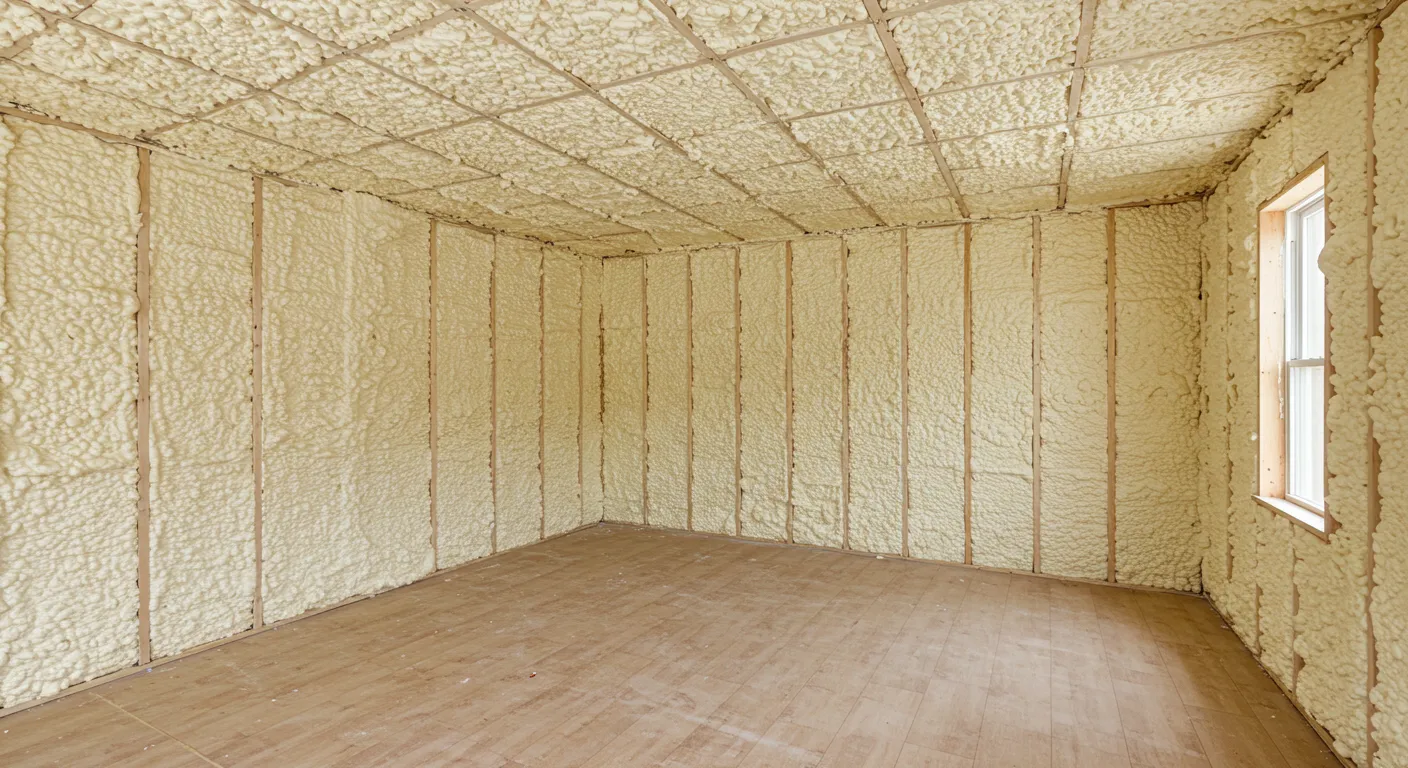Spring Hill, Florida, experiences a mix of hot summers, mild winters, and unpredictable humidity levels. These variations can make maintaining indoor comfort challenging. Traditional insulation methods often struggle to adapt to these changing conditions, leading to increased energy costs and inconsistent indoor temperatures.
Spray foam insulation provides a solution that accommodates these fluctuations, ensuring stable indoor environments throughout the year. Its ability to expand and seal gaps makes it a reliable choice for homeowners looking for long-term insulation benefits.
How Spray Foam Insulation Responds to Temperature Changes
Unlike fiberglass or cellulose insulation, spray foam creates an airtight barrier that resists heat transfer. This feature is particularly useful in Spring Hill, where summer temperatures frequently exceed 90°F, while winter lows can drop to around 40°F. The adaptability of spray foam helps regulate indoor temperatures efficiently, reducing reliance on heating and cooling systems.
Benefits in Hot Weather
- Prevents Heat Transfer: Spray foam’s closed-cell structure acts as a thermal barrier, stopping heat from entering the home.
- Reduces HVAC Load: With less external heat entering the house, air conditioning units work less, lowering energy bills.
- Eliminates Air Leaks: Expanding foam seals gaps in walls, attics, and crawl spaces, preventing unwanted warm air from infiltrating indoor spaces.
Performance During Cooler Months
- Prevents Heat Loss: The same insulating properties that keep heat out in summer work to retain warmth in winter.
- Reduces Drafts: Spray foam eliminates cold spots by sealing air leaks in walls and around windows.
- Moisture Resistance: Its ability to repel moisture prevents mold growth and improves indoor air quality.
Energy Efficiency and Cost Savings
One of the primary reasons homeowners choose spray foam insulation is its impact on energy consumption. Traditional insulation materials degrade over time, reducing their effectiveness. Spray foam, however, maintains its structure and efficiency for decades.
- Lower Energy Bills: Studies show that homes with spray foam insulation can reduce energy costs by up to 50%.
- Consistent Indoor Temperatures: Eliminating thermal bridging ensures rooms remain comfortable year-round.
- Extended HVAC Lifespan: With reduced demand on heating and cooling systems, homeowners experience fewer maintenance issues and longer equipment lifespans.
Moisture Control and Mold Prevention
Spring Hill’s humid climate creates the perfect conditions for mold and mildew. Traditional insulation materials, such as fiberglass, can absorb moisture, leading to deterioration and mold growth.
Spray foam acts as a moisture barrier by:
- Sealing gaps and cracks where moisture can enter.
- Preventing condensation buildup within walls.
- Reducing the risk of mold-related structural damage.
Soundproofing Benefits for Homes and Businesses
Beyond temperature control, spray foam insulation enhances indoor comfort by reducing noise transmission. Homes near busy roads, commercial areas, or high-traffic neighborhoods benefit from its sound-dampening properties.
- Minimizes Outdoor Noise: Closed-cell spray foam significantly reduces sound infiltration.
- Improves Privacy: Interior applications help contain sound within rooms, making it an excellent choice for offices, home theaters, and multi-family housing.
Long-Term Durability and Sustainability
Traditional insulation materials often degrade over time, requiring replacement or additional layers to maintain effectiveness. Spray foam insulation offers long-lasting performance with minimal maintenance.
- Resistant to Pests and Rodents: Unlike fiberglass, spray foam does not serve as nesting material for rodents or insects.
- Eco-Friendly Benefits: By reducing energy consumption and carbon footprints, spray foam contributes to sustainability.
- Lifespan of Over 20 Years: A well-installed spray foam system retains its efficiency without the need for frequent replacements.
Finding the Right Insulation for Your Home
If you’re considering upgrading your insulation, spray foam is a practical choice for Spring Hill’s diverse climate conditions. It outperforms traditional materials by improving energy efficiency, reducing moisture issues, and enhancing overall home comfort.
For expert installation and consultation, R-Factor Spray Foam provides professional services tailored to your specific needs. Contact us at (352) 663-5905 or email [email protected] to learn more about how spray foam insulation can benefit your home.
Frequently Asked Questions
How long does spray foam insulation last?
Spray foam insulation maintains its effectiveness for over 20 years with proper installation, far outlasting traditional insulation materials.
Is spray foam insulation safe for homes?
Yes, once cured, spray foam insulation is safe and does not emit harmful chemicals. Proper installation ensures safety and long-term performance.
Can spray foam help reduce my energy bills?
Yes, homes with spray foam insulation often see a reduction in energy costs by up to 50% due to its superior sealing and insulating properties.
Does spray foam insulation prevent mold growth?
Yes, closed-cell spray foam acts as a moisture barrier, preventing the conditions necessary for mold and mildew development.
Is spray foam insulation better than fiberglass?
Spray foam provides superior insulation, air sealing, and moisture resistance compared to fiberglass, making it a more effective long-term solution.
How does spray foam handle extreme temperatures?
Spray foam insulation adapts well to temperature extremes by preventing heat transfer, keeping homes cool in summer and warm in winter.
Can spray foam insulation be applied to existing homes?
Yes, spray foam can be added to existing homes, including attics, walls, and crawl spaces, to improve insulation and energy efficiency.
Will spray foam insulation help with soundproofing?
Yes, spray foam significantly reduces noise transmission, making it ideal for homes near busy areas or for those wanting improved privacy.
How does spray foam impact indoor air quality?
By sealing air leaks and preventing moisture buildup, spray foam contributes to cleaner indoor air and reduces allergens like dust and mold.
Is spray foam insulation environmentally friendly?
Yes, by reducing energy consumption and lowering HVAC emissions, spray foam insulation supports eco-friendly home efficiency.


